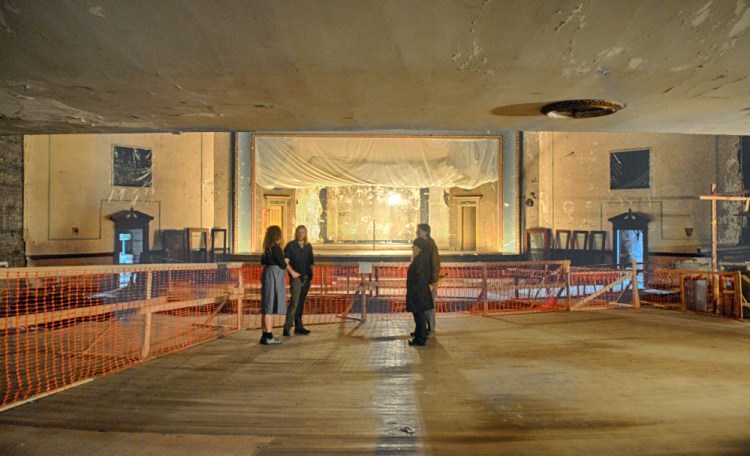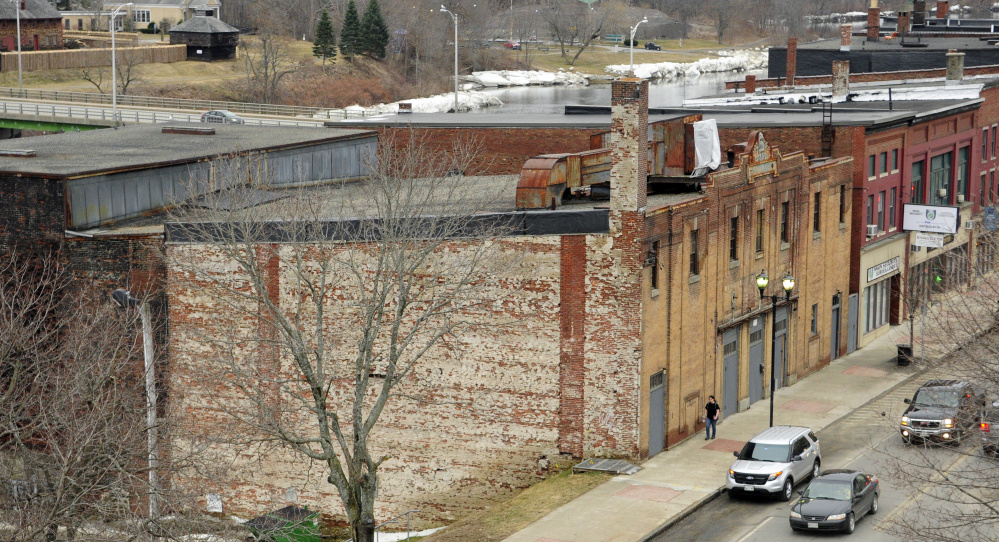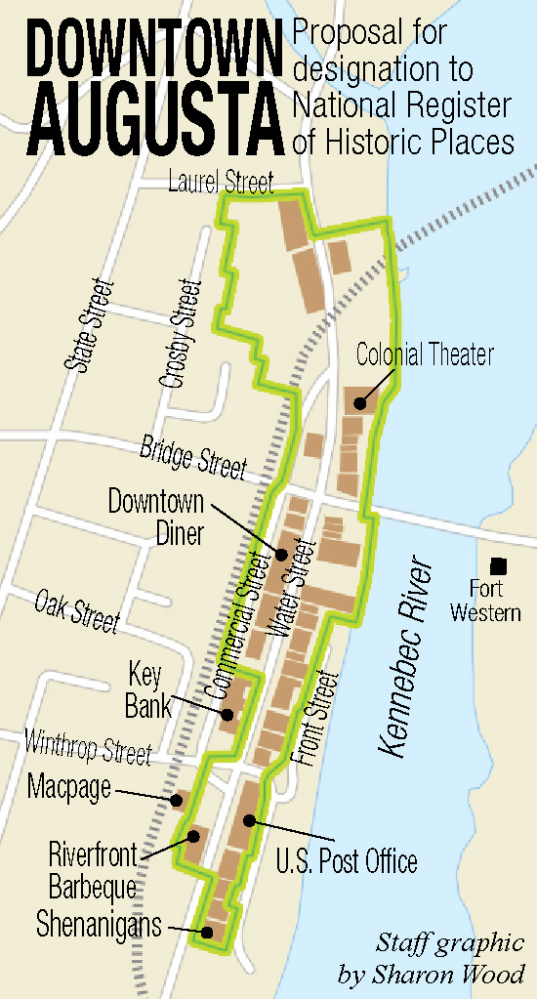AUGUSTA — The city is working on a proposal to have almost the entire downtown Water Street area added to the National Register of Historic Places.
The designation would be similar to but also different from the proposal to create a local historic district encompassing the riverfront downtown, which is also under consideration. Both are expected to result in downtown buildings that undergo renovations becoming eligible for federal historic preservation tax credits.
Having the downtown area named as a district on the National Register of Historic Places would not come with any additional regulatory requirements for the owners of buildings within the district. A local historic district, as proposed so far, would regulate the changes building owners could make to the exteriors of their buildings which are visible to the public. The process of creating a local historic district that includes downtown is currently on hold after some building owners, mostly from a west side residential area, expressed concerns about it.
City councilors voted last month to create a historic district ordinance, but the ordinance does not define where the district will be. That, according to Mayor David Rollins, will be one of the first duties of the new Augusta Historic District Review Board, a committee of citizens created by the ordinance.
The nearly simultaneous process of seeking to have the downtown declared a district on the National Register of Historic Places continues.
A public session is planned Wednesday to discuss the city’s plan to nominate the downtown district to the national historic register and what it could mean for building rehabilitation projects within it.
Unlike the local historic district proposal, the proposal to seek to add downtown Augusta to the National Register of Historic Places doesn’t seem to have prompted opposition.
“I haven’t heard from anyone downtown that is not supportive” of the proposal, said Tobias Parkhurst, the chairman of the board of directors of the Augusta Downtown Alliance whose family owns six buildings in downtown Augusta. “This is just a designation that opens up opportunity. There are projects on hold waiting for that designation to happen. I think the investment that would result would be swift and impactful.”
Matt Nazar, development director for the city, said his office is working on an application to have downtown named to the national historic register. He said about a dozen buildings there already are listed on the registry. He confirmed there is no regulation associated with the designation. The designation would open up access to federal historic preservation tax credits which could be used by downtown building owners to help fund building renovations that comply with historic standards.
“It does free up some potential funding sources,” Nazar said.
Nazar said he also had not heard of significant opposition to the proposal. If a majority of building owners within the district objected, the proposal would likely not move forward.
Parkhurst said some renovation projects won’t happen without access to historic preservation tax credits to help pay for them. He cited the proposed renovation of the long-vacant Colonial Theater as an example of a project downtown that could use historic tax credits for as much as 45 percent of its funding. He said in a letter to city councilors that theater proponents are about to launch a fundraising campaign seeking to raise $8 million to restore the former movie theater.
The proposed district, according to a map of its boundaries, would include most, but not all buildings on both sides of Water Street in the downtown area from the building containing Shenanigans on the southern end to just before Laurel Street on the northern end. The district boundaries exclude the Key Plaza building, built in 1988, but encompass most of the rest of the downtown.
The draft map of the district was created by the city in 2000 as part of a previous stalled effort to have the area named to the historic register. Nazar said the boundaries were drawn with National Trust for Historic Preservation standards in mind and were meant to include as many historic properties as possible.
Buildings within the district that are judged to not be “contributing” properties under historic standards would not be eligible for historic preservation tax credits.
The meeting is at 6 p.m. Wednesday in council chambers at Augusta City Center.
Officials from Sutherland Conservation and Consulting will give a presentation and answer questions about what the national register is and how it differs from a local historic preservation district. The firm’s offices are in the Olde Federal Building at 295 Water St., one of the buildings already named to the National Register of Historic Places in downtown Augusta.
Nazar said he hopes to have work on the application to name downtown Augusta to the National Register of Historic Places ready for submission by early August. He projected the designation, if the application is successful, could be made in late fall or early winter.
Keith Edwards — 621-5647
Twitter: @kedwardskj
Copy the Story LinkSend questions/comments to the editors.






Success. Please wait for the page to reload. If the page does not reload within 5 seconds, please refresh the page.
Enter your email and password to access comments.
Hi, to comment on stories you must . This profile is in addition to your subscription and website login.
Already have a commenting profile? .
Invalid username/password.
Please check your email to confirm and complete your registration.
Only subscribers are eligible to post comments. Please subscribe or login first for digital access. Here’s why.
Use the form below to reset your password. When you've submitted your account email, we will send an email with a reset code.